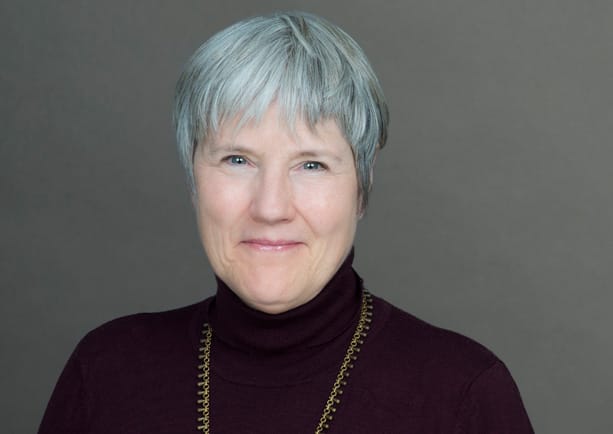
Kim Gilbert
- Availability:
- Accepting New Clients
- Session Format:
- OnlinePhone
- Office Days:
- MondayTuesdayWednesdayThursdayFriday
- Clientele:
- Adults (18+)
About
The psychotherapeutic relationship sensitively addresses the complexity of being human through responding effectively to the many forms human suffering can assume. Whether you are plagued by emotional dysregulation and negative thinking, immobilized by shame, struggling with self-esteem, haunted by high anxiety, embroiled in conflict with yourself and others, overwhelmed by grief or simply longing for a more meaningful life, a comprehensive psychotherapeutic approach can effectively and efficiently provide the experiential tools necessary for transformation.
My approach is uniquely tailored to the needs of each person. Together we discover what will best facilitate your process of change. Due to the depth and breadth of my multidisciplinary training, I have an extensive repertoire of approaches and perspectives to enhance our work together. I endeavor to speak from my listening, and respond from my seeing. I honour the wisdom of our embodiment, and explore the power of our embeddedness in the biological, psychological, and social environments we all inhabit.
Due to my own developmental history I have a particular interest in the experiences of birth and death. My practice stretches from considerations of in-utero beginnings to being-toward-death and the final passage of the terminally ill. I have extensive experience in both domains. In terms of the life process, I pay special attention to relationship – to yourself and your inner world, to others, and to your capacity to witness yourself and others in the present moment without judgment.
Complicated Grief, also known as Traumatic Bereavement, is an area of special interest and well-developed skills emerging from my own life history involving the primal loss of a sibling and a profound loss as an adult.
1. Interdisciplinary Training
The centrality of rigorous ongoing professional development is evidenced by my extensive interdisciplinary training which includes, but is not limited to:
- 6 years of psychodynamic psychotherapy training
- 10 years of study in Western continental philosophy focused on the question “What is Being?” (i.e., Hermeneutic Phenomenology and Existentialism)
- 12 years of Authentic Movement
- 20 years of Eastern philosophy culminating in the last 8 years of Advaita Vedanta meditation practice of self-inquiry focused on the single question “Who Am I?”
- 216 hours training and assisting in Sensorimotor Psychotherapy Level 1: Affect Dysregulation, Survival Defenses, and Traumatic Memory
- 360 hours training and assisting in Sensorimotor Psychotherapy Level 2: Emotional Processing, Meaning Making, and Attachment Repair. Sensorimotor Psychotherapy is a comprehensive somatic approach to talk therapy “when words are not enough.”
Although I originally trained in psychodynamic psychotherapy, my post-graduate training in psychotraumatology has revolutionized my understanding of the change process and the way I practice psychotherapy. Similarly, my study of Eastern philosophy has been instrumental in elucidating the wisdom/compassion of witnessing consciousness crucial to the empathic process of psychotherapy.
I am deeply indebted to the presence and generous teachings of my Advaita Vedanta teachers, both living and dead, namely Jac O’Keeffe, Sat Shree, Sri Aurobindo and Sri Nisargadatta Maharaj. They remain my distinguished guides to non-dual consciousness and beyond.
I am currently exploring the relationship between higher, non-dual consciousness and ordinary, dual consciousness and the implications that this relationship holds for the integration and healing of human suffering and the practice of psychotherapy.
2. Inter-professional Development and Referral Network
I have engaged in inter-professional studies and acquainted myself with excellent inter-professional practitioners for 29 years. My referral network includes but is not limited to:
- Japanese acupuncture
- Iyengar yoga/kinesiologist
- Naturopathic doctors
- Meditation teachers
- Neuro-Optimal practitioner
- Differential diagnostic testing
- Physiotherapist
- Trauma-Informed psychotherapy group
- Nutritional and orthomolecular-informed treatment for mental health and addictions
- Qi Gong instructor
These professionals are utilized when appropriate to create a circle of care that supports and enhances the psychotherapeutic process.
3. Walking the Talk
My commitment to “walking the talk” as a practicing psychotherapist is unwavering. My current efforts are focused on the fragility and resilience of attachment relationships in my clients, my self, and my colleagues. My most privileged lessons have come from my clients, who are always teaching me how to practice more effectively. They continue to help me refine the attachment work with regard to the therapeutic relationship.
Walking the talk also means ongoing self-inquiry. I continue to deepen my exploration of self-inquiry in my Advaita Vedanta meditations with teachers and peers in annual silent retreats.
The initial free 20-minute consultation is by phone, during which I can get a sense of your concerns, and you can get a sense of my response to those concerns. I can be reached by phone at (416) 967-0324 or by e-mail at kim.gilbert.2015@gmail.com, to schedule this initial call. I look forward to hearing from you.
Issues
- Abuse (childhood/familial)
- Abuse (intimate partner violence)
- Addiction
- Adoption
- Aging and Age-Related Concerns
- Anxiety
- Chronic Pain and Disability
- Depression
- Dissociation and Dissociative Identity
- Existential Concerns
- Health and Illness
- Infertility and Fertility
- Intergenerational Trauma
- Life Crisis and Transitions
- Loneliness and Isolation
- Loss and Grief
- Stress
- Trauma
Contact
- Phone:
- (416) 967-0324
- Email:
- kim.gilbert.2015@gmail.com